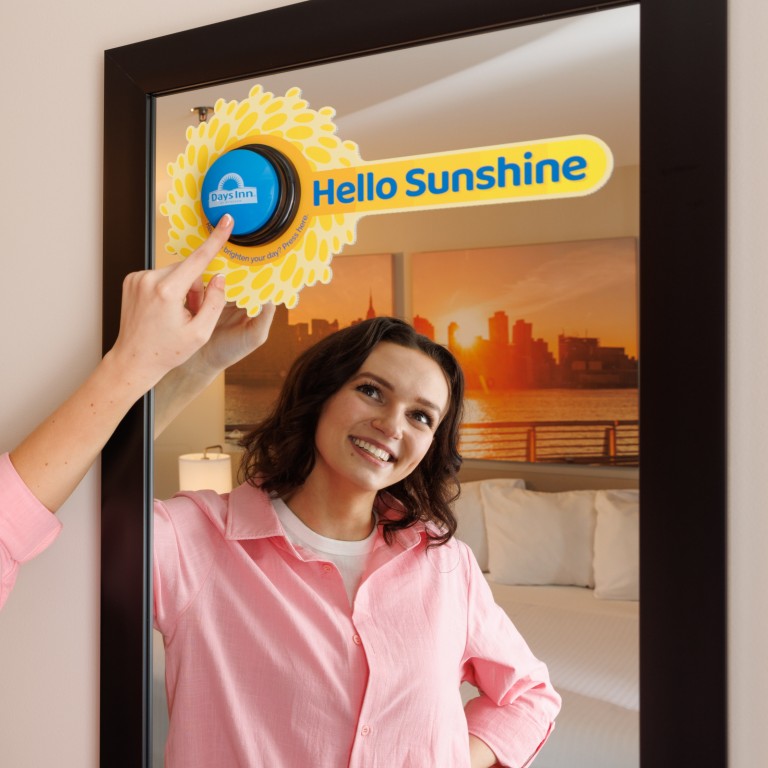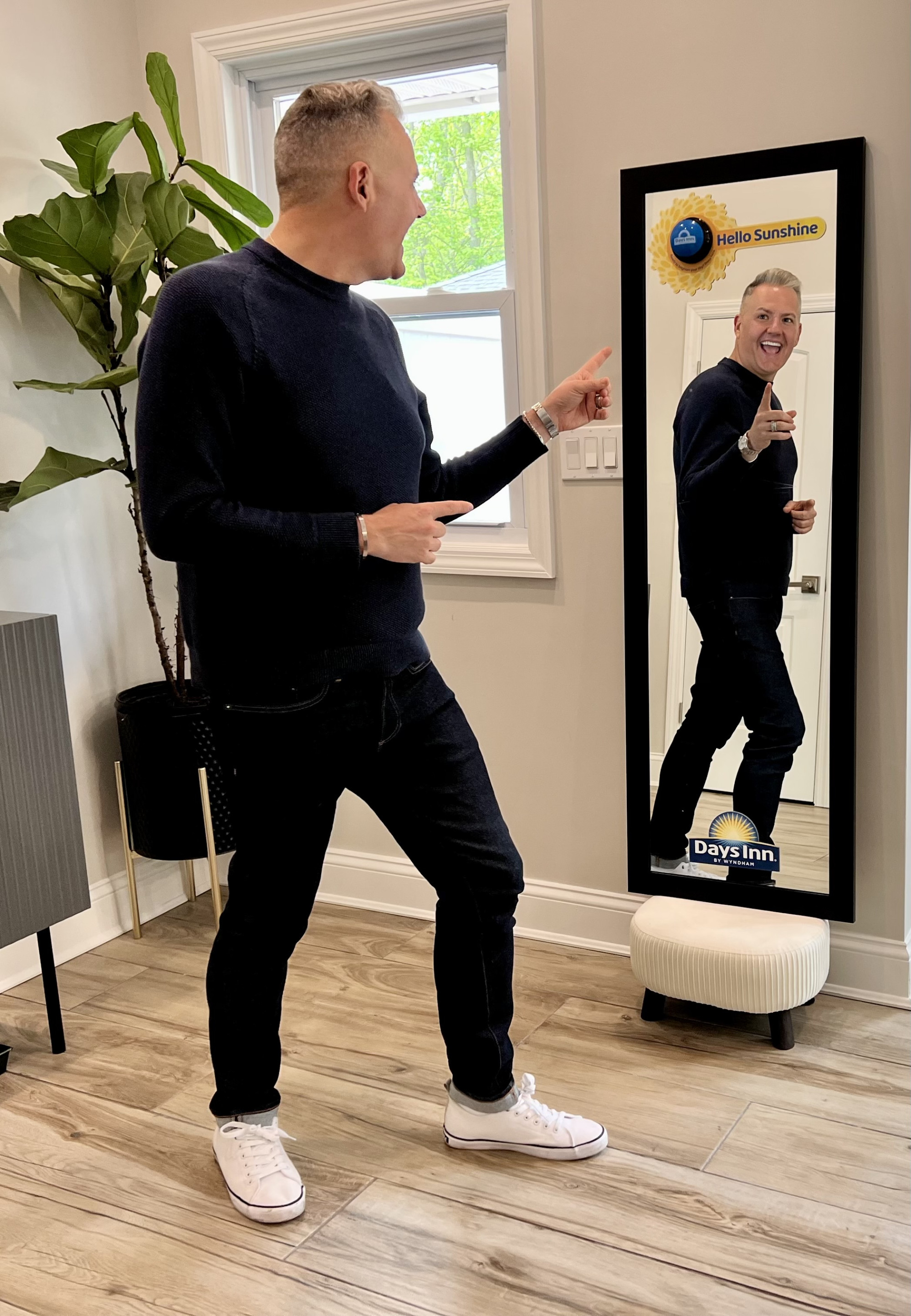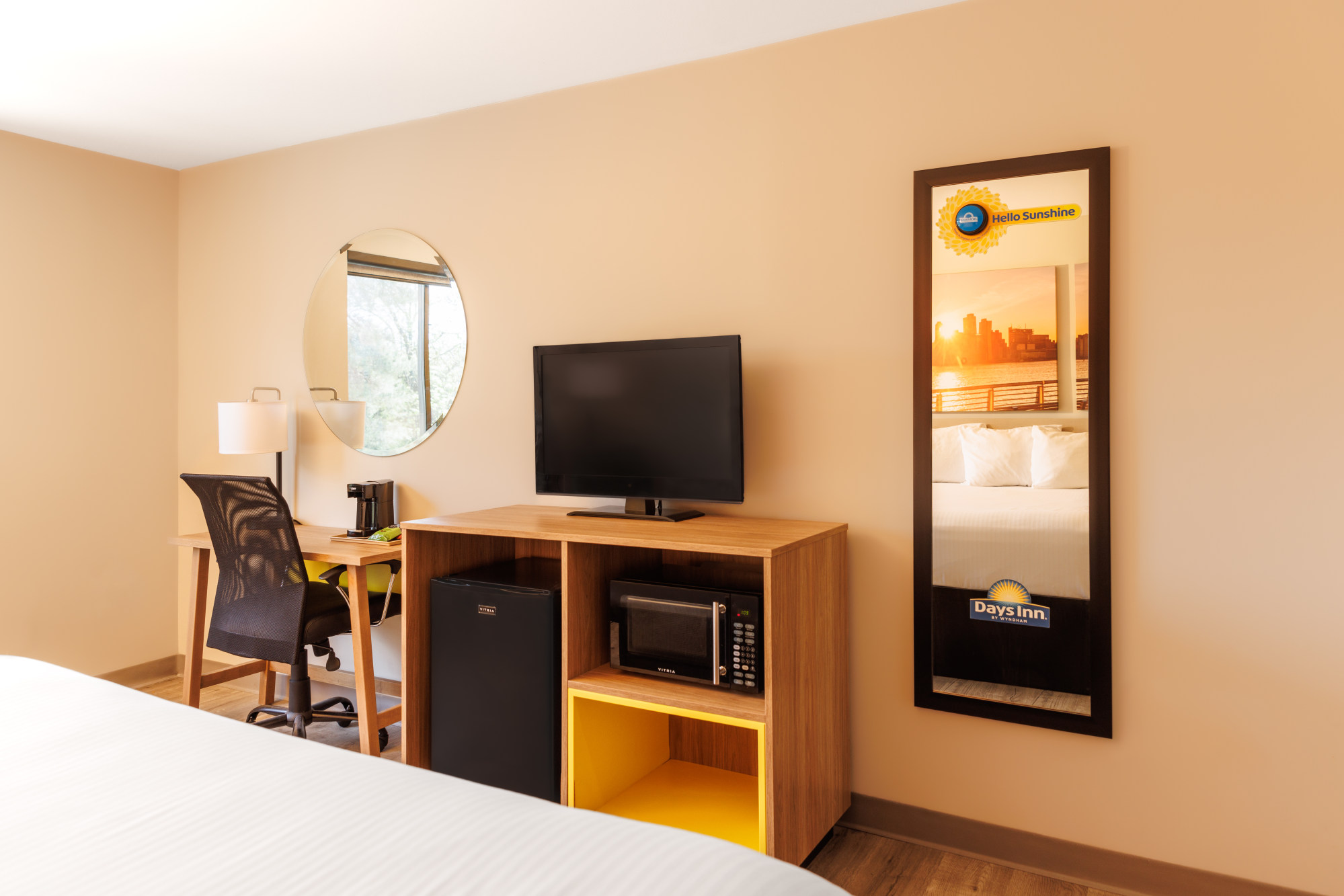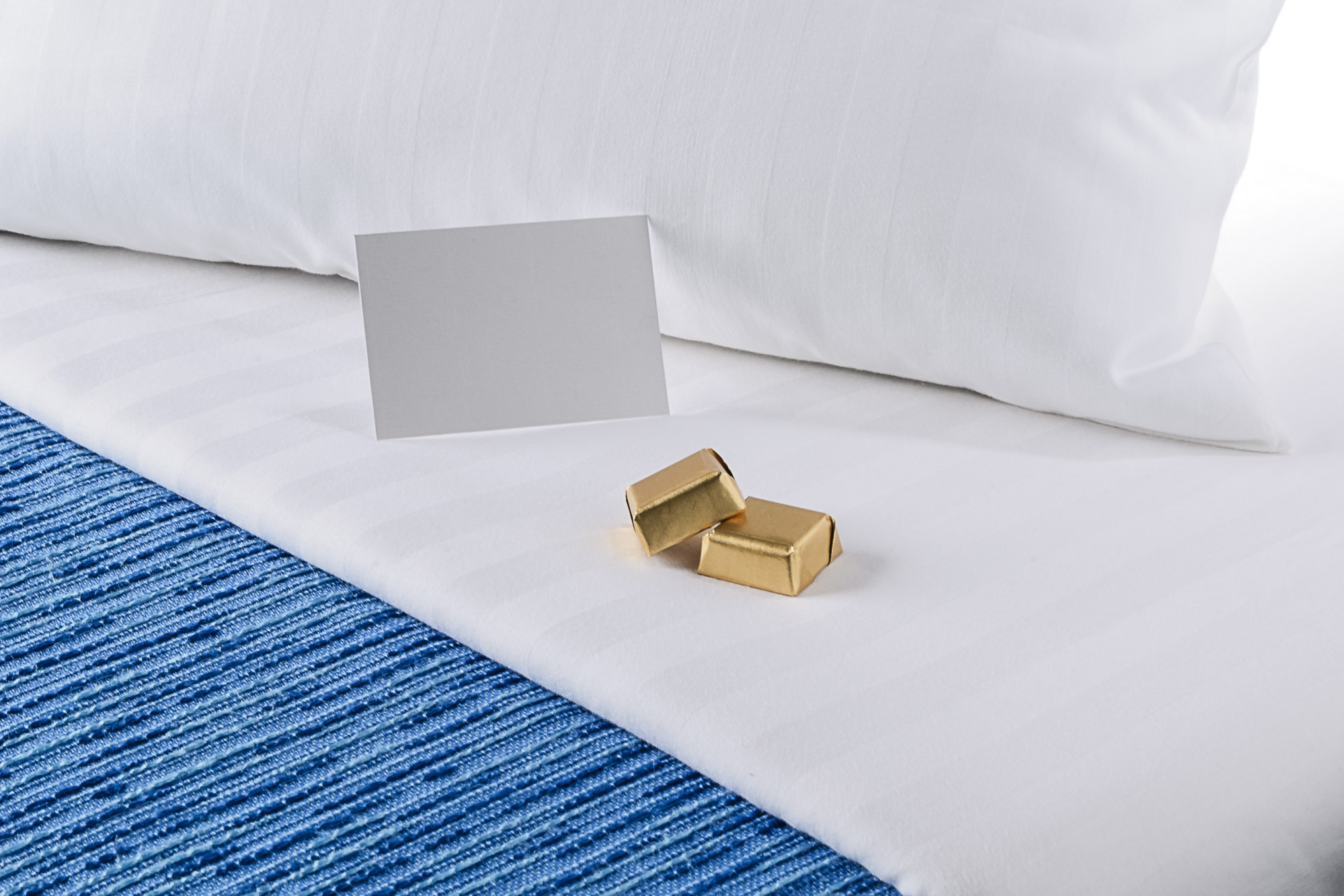
Days Inn’s new talking mirrors another sign hotels don’t listen to guests – wouldn’t you rather, say, faster internet?
- The mirrors at select Days Inn hotels in the US give guests compliments – voiced by US TV personality Ross Mathews – at the press of a button
- Guests being asked their opinions is only done to make them ‘feel’ valued, it seems – but then research shows they can be clueless about what they actually want
The recent announcement of a new in-room amenity from worldwide budget hotel brand Days Inn may have confirmed to many frequent travellers that despite the guest-experience surveys left on bedside tables and the further requests for comment at checkout, hotels don’t listen much.
Being asked their opinions just makes guests feel valued, but in fact hotels largely speak a language of their own, and speak it to each other.
Frequent hotel guests gradually learn to speak that language – what will be free within the room, and what will attract an extra charge. At breakfast, guests eventually learn that the cereal spoon is rarely part of the table setting but is instead found somewhere near the cereals. It only takes a few puzzled return trips for this piece of hotel grammar to sink in.
Hotels apparently often do things because that is just the way they have always been done, or, in the case of some novelty, because it’s the way that other hotels have started to do it.

Since the first one put a chocolate on the pillow, this rather pointless luxury gradually spread to become common even in meaner guest houses. The practice has begun to fade away because it no longer differentiates one hotel from another.
And hotels crave easily expressed differentiation from their competitors. As each copies the successful innovations of others, there’s a gravitational pull towards a central black hole of sameness, inspiring a contrary need to find some fresh difference that can give a hotel or chain its own individual personality.
Stop ‘selfish selfies’: wildlife charity denounces cruel animal photo trade
In theory this ought to lead to ever-increasing guest convenience, but in fact may simply tend towards more frippery, such as a free rubber duck in the bathroom.
And this seems to be the case with Days Inn, for this innovation is one unlikely to be copied elsewhere.
Is it free laundry? Faster internet? Better soundproofing? Quieter air-conditioning?
No. It’s a talking mirror, and one that is both complementary and complimentary (in a carefully gender-neutral way).

“On a scale of one to 10… you’re 11,” the mirror will cheerily say at the touch of a rather knob-like button, itself an aggressively cheerful homage to the Days Inn sun logo.
Press again.
“Well you are just lighting up this room. Time to go spread some of that sunshine,” says the device.
It seems as if American hotel company Wyndham Hotels and Resorts, owner of the Days Inn brand, is speaking to a domestic audience, because the mirror’s voice is the honeyed camp of United States television personality Ross Mathews, which supposedly adds value.
Mathews, despite past and recent presences on shows hosted by Jay Leno, Drew Barrymore and RuPaul, is merely a planet in orbit about these brighter celestial bodies, and unlikely to be recognised by foreigners.

Regardless, is a shrill cry of “Hello Sunshine! You are looking fantastic today” how we really want to start our mornings? Wouldn’t we rather be greeted with, say, a non-existent queue for a rapidly delivered, modestly priced and tasty breakfast, and a swift and hiccup-free checkout?
But then hotel guests are often clueless about what they actually want. As research by Boston University revealed in 2019, guests can wildly underestimate or overestimate their likely usage of facilities such as in-room dining or laundry services. So perhaps the idea of the mirror’s cheery charm will be enough to make some choose Days Inn over another brand.
The budget hotel chain is one of the largest, with more than 1,800 establishments worldwide, although the fawning mirror is available as an option only at a limited number of North American properties.
The world’s 10 least-visited countries: from Montserrat to Micronesia
The company declined to provide a spokesperson to address questions such as whether localised versions might be brought to other countries.
Perhaps this desire for on-demand affirmation of one’s attractiveness is a peculiarly American attribute. The talking mirror turns out to be the second in what may be a series of talking room features, 2022’s being a pillow that also “dished out cheeky compliments”.
Some may be reminded of the pull-string talking dolls of their childhoods and/or the Toy Story films. But if, in the age of Alexa and Siri, this still seems a good idea, why are the mirrors only available until June 30?
Perhaps because, with only 10 different audible equivalents of an air kiss, the device’s appeal may quickly pall for even the greatest narcissist.
The obvious answer would seem to be that hotels are still not listening to guests, and the mirror has only been introduced to generate media coverage.
So far, so successful. But perhaps it is some hotels that need to take a good look at themselves.

